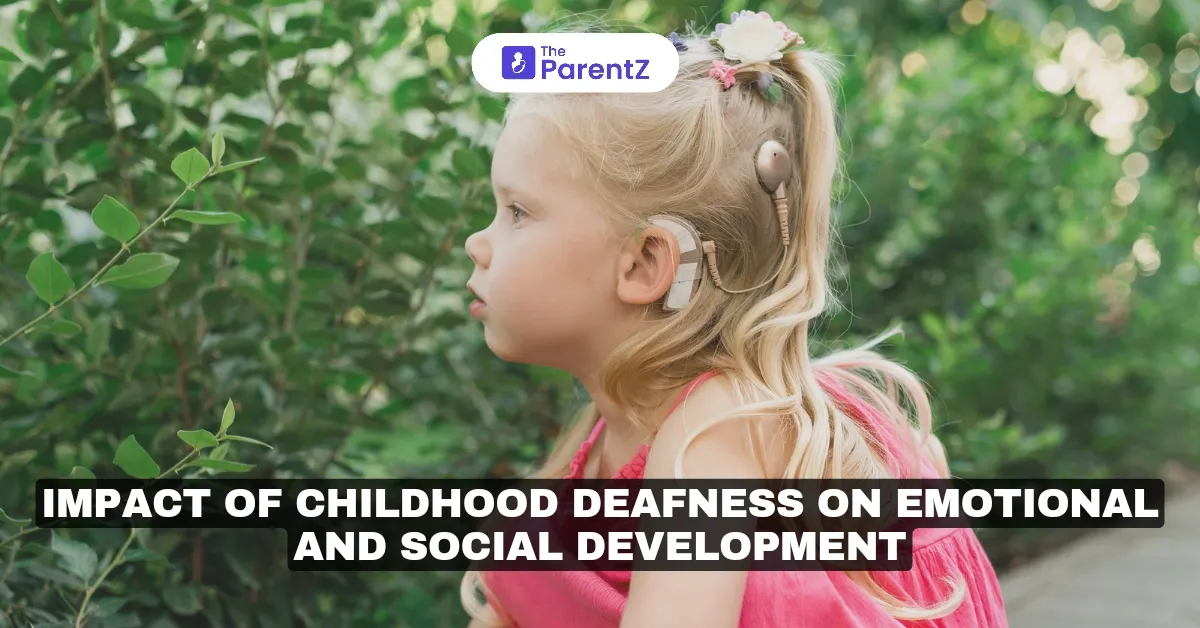Childhood deafness, especially when not identified or addressed early, can create unique emotional and social challenges for affected children. Hearing is a primary way through which children learn to communicate, bond, and understand social norms. Therefore, hearing impairments may delay or complicate their ability to form relationships, interpret social cues, and manage emotions effectively. With early intervention and targeted support, however, children with hearing loss can lead fulfilling social lives and develop strong emotional well-being.
The Emotional Impact of Childhood Deafness
Children with hearing loss often face emotional challenges due to their experiences with communication barriers and social isolation. Key emotional effects include:
1. Feelings of Frustration and Anxiety: Young children with hearing impairment may feel frustrated when unable to express themselves or understand others. This can lead to heightened anxiety in social situations.
2. Low Self-Esteem: Repeated difficulties in social interactions and possible exclusion from peer groups can impact self-confidence. They may feel “different” or less competent, which can affect self-esteem, especially during formative years.
3. Increased Risk of Depression: Studies show that children with untreated hearing loss have a higher likelihood of experiencing mood disorders. Isolation or social rejection may contribute to symptoms of depression over time.
4. Challenges with Self-Regulation: Children with hearing impairments sometimes struggle with recognizing and managing their emotions, particularly if they lack accessible ways to express or discuss feelings.
Social Development Challenges in Children with Deafness
Social skills are often learned by observing and imitating others, particularly in conversations and interactions. Hearing impairments can limit access to these experiences, affecting social development in the following ways:
1. Difficulty in Forming Friendships: Children with hearing loss may find it challenging to communicate with their hearing peers, which can make it harder to initiate and maintain friendships. Misunderstandings can lead to feelings of isolation.
2. Challenges in Group Settings: Environments like classrooms or playgrounds, where multiple people are speaking or background noise is present, can be overwhelming. This may lead children to avoid group settings, reducing social exposure.
3. Understanding Social Cues: Interpreting body language, facial expressions, and tone of voice can be difficult without hearing, limiting their ability to understand social dynamics and respond appropriately.
4. Increased Risk of Bullying: Studies show that children with hearing impairments are more susceptible to bullying or exclusion due to their differences in communication abilities. This can further impact their emotional and social growth.
How Early Intervention Can Support Emotional and Social Development
Early intervention plays a crucial role in mitigating the impact of hearing loss on a child’s emotional and social well-being. Key strategies include:
1. Early Language Development Support: Programs that focus on building communication skills—whether through speech, lip reading, or sign language—enable children to communicate effectively, reducing frustration and empowering social engagement.
2. Social Skills Training: Targeted social skills training helps children learn strategies to navigate social situations, understand cues, and respond appropriately. Role-playing, group therapy, or social skills classes can provide a supportive learning environment.
3. Emotional Resilience Coaching: Counseling and emotional support help children with hearing loss develop resilience, a critical component for coping with challenges and building self-esteem. Techniques like emotional labeling and self-regulation exercises are beneficial.
4. Inclusive Educational Environments: Integrating children with hearing impairments into inclusive classrooms or social settings helps normalize differences and promotes understanding among peers. This type of environment allows children with hearing loss to feel a sense of belonging.
5. Family Education and Involvement: Educating families on effective communication and coping strategies creates a nurturing home environment where children feel supported. Family members play a vital role in modeling and encouraging positive social interactions.
Conclusion
Childhood deafness does not have to define a child’s social and emotional future. Through early detection, consistent intervention, and a supportive network, children with hearing impairments can develop strong emotional and social skills. By understanding the unique challenges these children face and providing appropriate resources, caregivers, teachers, and communities can empower them to build meaningful relationships, improve self-confidence, and foster emotional resilience.






